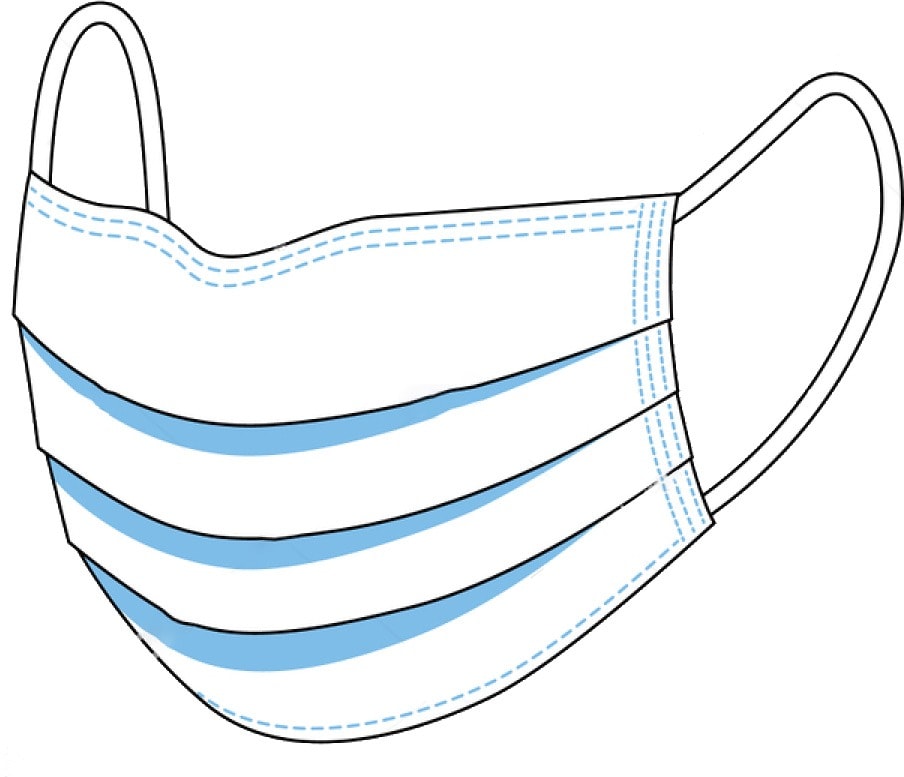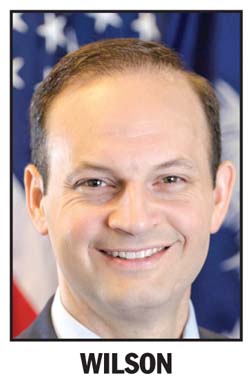AG, SLED weigh in on mask laws

By Jason Evans
Staff Reporter
jevans@thepccourier.com
STATE — With COVID-19 cases rising in South Carolina, several cities, including Clemson, Greenville and Columbia have passed ordinances requiring masks to be worn in public.
 Central officials were set to consider an ordinance requiring masks on Tuesday.
Central officials were set to consider an ordinance requiring masks on Tuesday.
Following the passage of mask ordinances around the state, South Carolina Attorney General Alan Wilson and the State Law Enforcement Division issued clarifications regarding the requirements.
Wilson issued a statement on June 24, saying his office received a number of calls about the ordinances passed by Greenville and Columbia “that concern the wearing of masks within those cities’ jurisdictions and under certain conditions.”
Wilson said he was providing “a general answer” and that his office “is not endorsing, defending or even attacking these ordinances.”
“The only question before my office is whether a city can lawfully pass this type of ordinance,” he said. “The short answer to that question is — yes, a city can pass this type of ordinance.”
State laws and South Carolina’s constitution have given cities the authority to pass these types of ordinances under the Home Rule doctrine, Wilson said.
“The basic premise under the Home Rule doctrine is to empower local governments (i.e. towns, cites and counties) to effectively govern themselves without interference from state government,” he said.
That power has limits, Wilson said.
“For example, it is our position that a city cannot pass its own gun laws, because a state law specifically preempts this action,” he said.
Regarding the masks ordinances, “in this case there is no state law that preempts or prohibits a city from passing this particular ordinance,” Wilson said.
Another limitation on cities passing these kinds of ordinances is that “the ordinance cannot be arbitrary or capricious,” he said.
“In other words, if there was no COVID-19 pandemic or public health emergency going on, a court might find the requirement to wear a mask arbitrary,” Wilson said. “That is not the case here.”
If there was a riot, a city could pass a curfew to get control of the civil unrest, he said.
“A city could require a mandatory evacuation in the event of a local flood,” Wilson said. “Normally, a city could pass an emergency order requiring people to leave an area or stay in a particular area for a period time.”
An exception to that would be if the governor issued an emergency order, he said.
“That would preempt a city from passing a different emergency order,” Wilson said. “That was our position two months ago when cities were passing their own emergency lock-down orders after Gov. (Henry) McMaster issued his state of emergency order. That remains our position today.”
An ordinance violating a person’s constitutional rights would be the final limitation, he said.
“A city has the right to pass these ordinances, and the only way to know if someone’s constitutional rights have been violated by these ordinances would be on a case by case basis involving very specific facts,” Wilson said.
“In other words, an otherwise lawful ordinance can be applied in a way that violates someone’s rights,” he said. “Based on court precedent, simply requiring someone to wear a mask at the grocery store, or stop smoking in a restaurant, or be home before curfew does not constitute a violation of rights.
We would need specific facts to make that determination, and we do not have those facts at this time,” Wilson continued.
Wilson also addressed Section 16-7-110, a law prohibiting the wearing of masks in public, and whether the law could subject people to prosecution for obeying city ordinances requiring the wearing of a mask in commercial establishments.
“Basically, you have state law that says you cannot wear a mask and city ordinance that says you must wear a mask,” he said.
Section 16-7-110 was passed in 1962 “with the intention of preventing members of the Ku Klux Klan from concealing their identities while committing acts of terrorism,” Wilson said.
“With that in mind, this statute, in our opinion, would not be applicable to the mask ordinance, because the wearer is not attempting to conceal their identity, but to comply with a city health ordinance,” he said.
Wilson’s full statement can be found at scag.gov.
“If I thought these ordinances were unlawful, I promise you I would be seeking a legal remedy,” he said.
Sheriff Rick Clark reached out to the State Law Enforcement Division for clarification on mask ordinances’ impact on concealed weapons permit holders. SLED sent Clark a statement on Thursday.
Both McMaster and South Carolina Department of Health and Environmental Control state epidemiologist Dr. Linda Bell have encouraged the wearing of face coverings or masks “to help stop the spread of COVID-19 in South Carolina,” the statement said.
The statement also acknowledged Wilson’s statement that cities can pass mask requirement ordinances and that wearing a mask to comply with a city health ordinance would not violate Section 16-7-110 or any other state law.
“Accordingly, there is no South Carolina concealed weapons permit law that prohibits a South Carolina CWP holder from wearing a mask to comply with a city or county health ordinance or to help stop the spread of COVID-19 while carrying a concealed weapon in South Carolina,” the statement concluded.


























